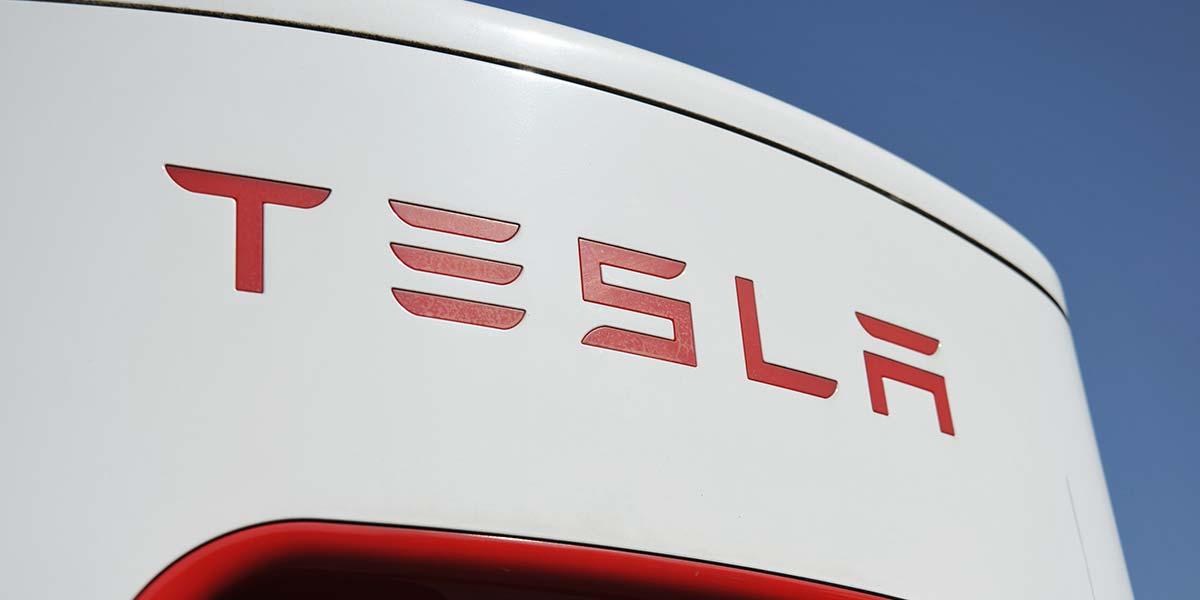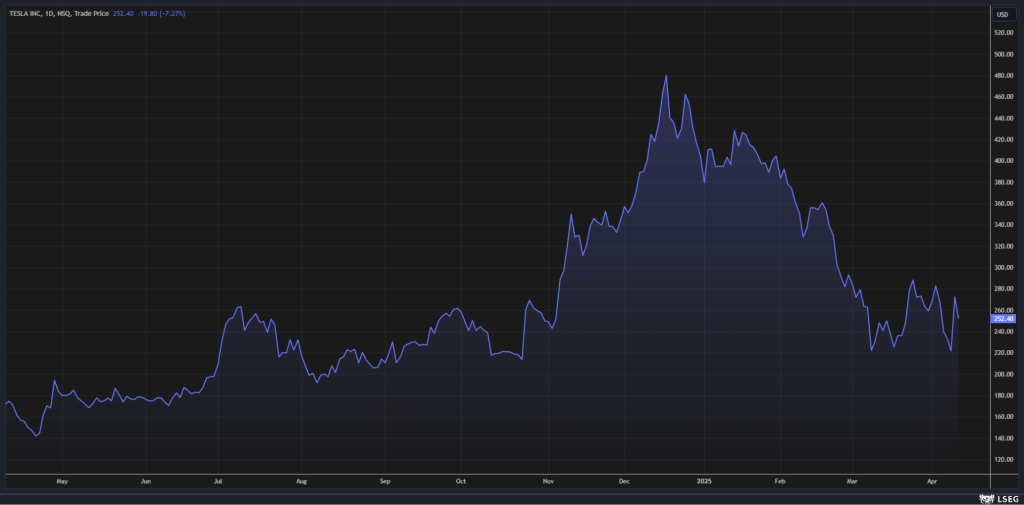The share price of Tesla took a significant hit on Thursday, dropping 7.3% and closing at $252.40. The decline indicates a reversal of strong gains from the previous day when the giant EV maker saw an increase of 23%, its largest rise since 2013.
The drop was also in line with the movement in Wall Street on Thursday that saw the Dow Jones Industrial Average (DJIA) decreasing by 2.5% to 39,593.66. NASDAQ contracted by 4.31% to 16,387.31, and S&P 500 declined by 3.46% to 5,268.05.
Additionally, Tesla’s stock has fallen by 38% since the beginning of the year.
Shares of the company were bolstered on Wednesday by President Trump’s announcement to pause significant tariffs for 90 days to facilitate negotiations, setting a minimum tariff rate of 10%. However, Thursday’s slide followed the White House’s confirmation of a 145% tariff rate on Chinese imports, prompting reciprocal actions from Beijing and the European Union.
Amidst the tariff turmoil, analysts from UBS, Goldman Sachs, and Mizuho revised Tesla’s price targets downward, citing potential impacts on profit margins due to automotive tariffs.
UBS noted Tesla’s increased volatility, attributing it to the company’s premium valuation in a nervous market environment, and expressed concerns about demand.
Tesla is facing brand challenges, declining deliveries, protests, and criminal acts targeting its facilities and vehicles. CEO Elon Musk has drawn criticism for his advisory role to President Trump and his endorsement of Germany’s far-right AfD party, sparking opposition in Europe.
The instability, coupled with the looming tariff threats, poses a risk to Tesla’s profit margins, given the company’s reliance on parts from China, Mexico, and other regions.
Previously, Tesla’s growth strategy relied on high sales volumes of cars and energy storage systems in Europe and Asia. However, increasing competition and new tariffs have raised the stakes for the automaker.






